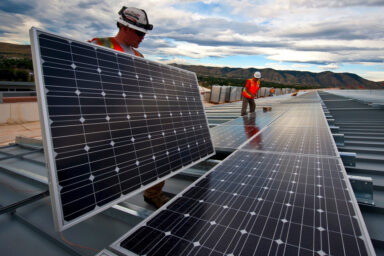Saturday Hashtag: #Satellites
Welcome to Saturday Hashtag, a weekly place for broader context.
|
Listen To This Story
|
The Non-State Ownership Problem: One Example
Petulant oligarchs like Elon Musk, the biggest corporate welfare queen on the planet, are now determining outcomes of international conflicts. Musk personally assured Putin that Ukraine’s access to Starlink would be limited. Then Musk fed advantageous StarLink info to Russia which derailed Ukraine’s spring offensive. Musk did not notify the US military until after he denied Ukrainian access.
An Existential Problem: Saturation
Last year alone, more satellites were launched than during the first 70 years of the Space Age. The GAO predicts an additional 58,000 by 2030.
This concentration of satellites is affecting the Earth’s upper atmosphere including: the mesosphere which protects from meteors, the magnetosphere which protects from solar wind, and the ionosphere which protects from radiation. It is also impacting the global environment and interfering with the scientific observation of space on several levels.
Then there is the Kessler syndrome, a scenario in which the upper atmosphere becomes too dense with the perfusion of orbital objects leading to cascading collisions which create an expanding debris field that, like a domino effect, becomes a wave of annihilation that destroys all the satellites around the globe.
The number of spacecraft launched annually has doubled every two years since 2015. The number of orbiting satellites is increasing faster than regulations can accommodate and nation-states are even blowing up defunct satellites without any global coordination or even a plan.
So at this point, the amount of man-made space debris is in the millions, and will all be hurtling around the globe at 17,500 miles per hour, for decades.
Another part of the calculus is the existing millions of natural micrometeoroids, already orbiting the Earth at similar speeds. Calculations show that a 10 centimeter fragment traveling 22,000 mph can have the force of 7 kilograms of TNT.
These satellites are also vulnerable to hacking, which is critical because of how integral they have become to Earth and space infrastructure.
Finally, if the cascading collision of satellites (Kessler syndrome) occurs, it would eventually destroy all existing satellites — dramatically impacting our daily lives. It would end all space launches and space exploration for generations.
And oh yeah… it could destabilize the Earth’s orbit.
United Nations Register of Objects Launched into Outer Space
From the United Nations Office for Outer Space Affairs: “To date approximately 88% of all satellites, probes, landers, crewed spacecraft and space station flight elements launched into Earth orbit or beyond have been registered with the Secretary-General.”
Four Tons of Satellites to Be Launched Daily by 2032, Demand Concentrates by a Handful of Players
From Euroconsult: “Satellite demand is experiencing sustained growth driven by NGSO constellations, while GEO comsat demand is rebounding with smaller assets. Beyond this momentum, there is a concentration of demand by constellations, posing challenges in both launch and manufacturing, thereby reshaping the market structure. Legacy government customers continue to generate two-thirds of industry revenues.”
In Booming Satellite Market, Micro-Rockets Are the Next Big Thing
The author writes, “Contemporary life would hardly be possible without satellites. Much of what people do on Earth today relies heavily on what’s happening high above their heads — from monitoring wildfires, deforestation and sea-surface temperatures to enabling connections to new mobile technologies like 5G in hard-to-reach areas. A recent wave of cheaper, miniature satellites being sent into low orbits of 500 to 1,000 kilometers above Earth by the likes of Elon Musk’s SpaceX and UK-based OneWeb signals a growing trend.”
Nasa Chief Warns China Is Masking Military Presence in Space With Civilian Programs
The author writes, “The head of Nasa has warned of China bolstering its space capabilities by using civilian programs to mask military objectives, cautioning that Washington must remain vigilant. ‘China has made extraordinary strides especially in the last 10 years, but they are very, very secretive,’ Nasa administrator Bill Nelson told lawmakers on Capitol Hill.”
China to Leverage Growing Commercial Space Sector to Launch Megaconstellations
From Space News: “China will utilize expected launch capacity from the country’s emergent commercial space sector to help realize its megaconstellation plans. The move will help traditional state-owned players focus on civil and military programs, including human spaceflight, military and lunar plans, while also boosting China’s overall launch and space capabilities and meeting national strategic goals.”
Russian Space Nuke Could Render Low-Earth Orbit Unusable for a Year, US Official Says
The author writes, “The detonation of a Russian nuclear space weapon could render low-Earth orbit unusable for a year, according to a top Pentagon space official. ‘Several analysts do believe that detonation in space at the right magnitude in the right location could render low-Earth orbit, for example, unusable for some period of time,’ John Plumb, assistant defense secretary for space policy, told a House hearing.”




